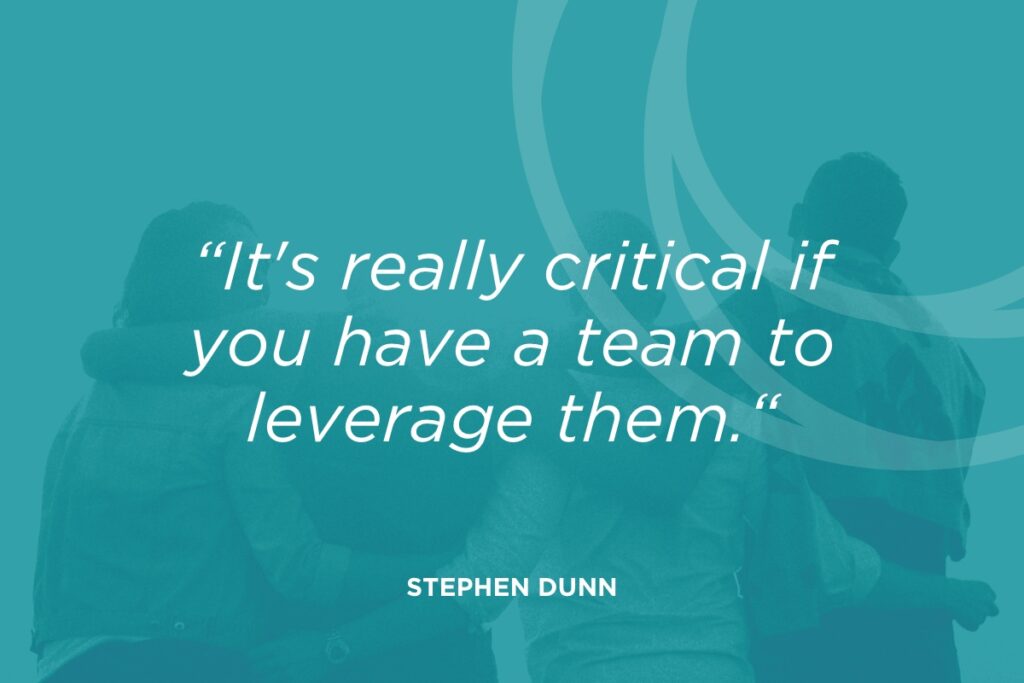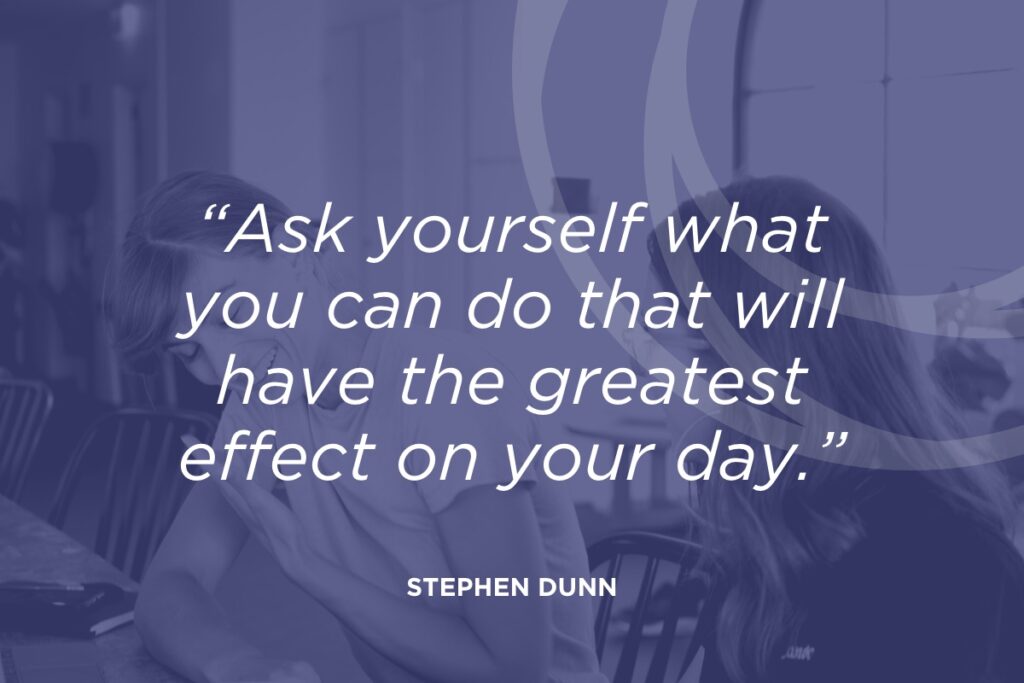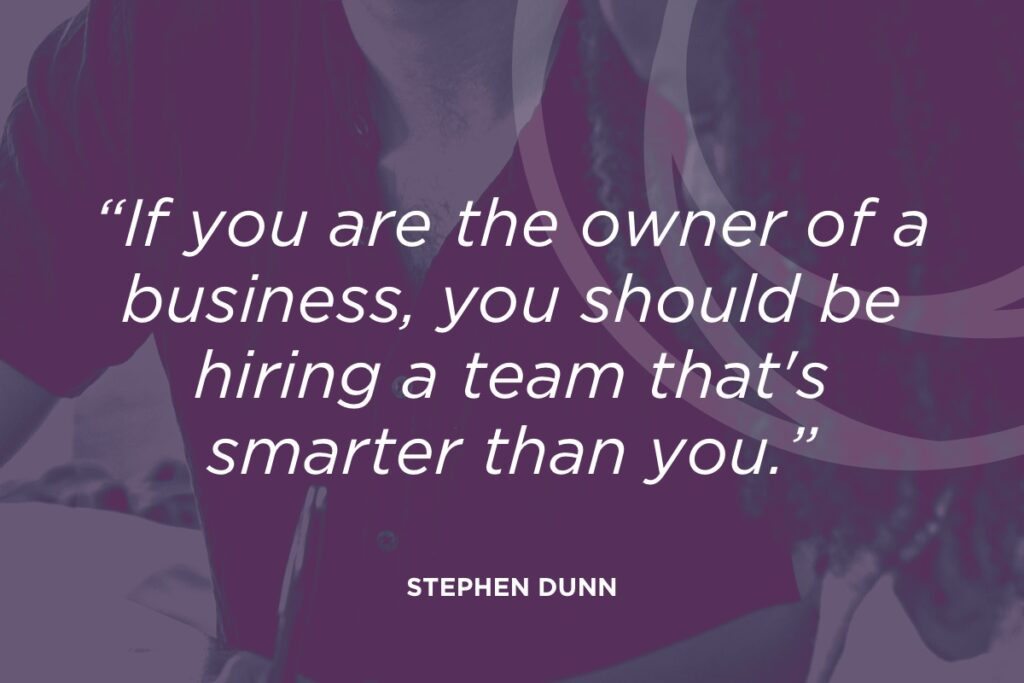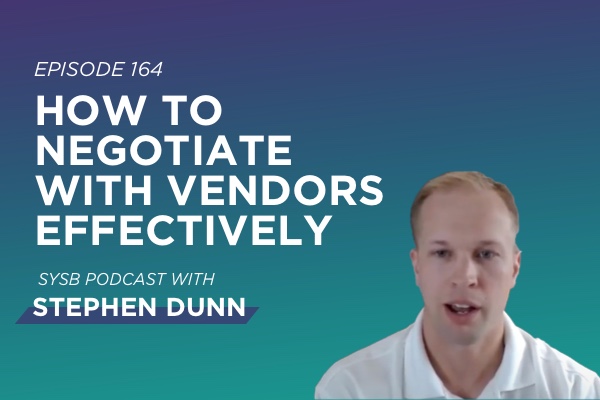In this Scale Your Small Business episode, we’re shining the spotlight on the Chief Operating Officer, Stephen Dunn, of Exeter Building Company. Exeter specializes in building luxury custom homes inside the Raleigh belt line and in premiere Raleigh and surrounding area neighborhoods. He also has a master of accounting from the University of North Carolina Business School and is a certified public accountant.
One of the many things that we business owners struggle with is managing our day-to-day. Stephen thinks the most challenging day-to-day aspect of running a business is identifying what you need to work on. Prioritization of tasks is hugely important. Understanding which ones leverage your time is critical. He suggests asking yourself what you can do that will have the greatest effect on your day.
Business owners experience fires all the time. When you have those, they should always lead you to better questions like, “why did this come up?” or “how can I create leverage in another scenario to create a stronger output so that either doesn’t happen again or how do I mitigate the risk of it?”
How do we fix the fire so that it doesn’t happen again in the future? It’s really critical if you have a team to leverage them. When you experience those fires, it’s important to involve them to help you problem-solve. This not only helps your team grow, but you’re also showing them you have confidence in them to solve problems. You could also be a team of one right now and in that case, you should make sure you have time to reflect.
Every week, Stephen schedules a State of the Union on his calendar, where he reflects on how things are going. He reflects on what he may need to change, what problems have arisen, and how he can solve them. When working with your team, he recommends letting your team communicate, solve the problem, identify the root cause of it, and then fix it.
Many businesses struggle with how to deal with vendors and suppliers. They’re concerned about their bottom line, their revenue, and whether the expenses are going in and out. Stephen likes to say, “you can either get quality, speed, or cheap, but you can only get two of the three.” Cheap is sometimes best, but sometimes it’s not. It’s important to look at what they bring to the table. Are you important to them? Can you count on them to show up when needed? What motivates them? Is it just the price? Negotiating on more than just price is critical. Focusing on just price can lead you into traps, but you learn every time.
What are the best ways to reduce those cost and expenses in our businesses? Stephen suggests reviewing and rating your vendors regularly. Consider their importance to your business. What is their cost? What is their work quality? Get feedback from your team. Use the feedback to negotiate with your vendors by comparing them to their competitors.
How important is using systems when working with all your suppliers? What helps you determine which system you should use? Stephen’s advice is that you don’t try to change everything right away. You look at what’s being done and how is it being done, and note the inefficiencies in bottlenecks. Then, you should consider what you want your future state to look like. From there, you can figure out what software solves the problems and needs that you have.
Stephen feels that small business owners need to stand together and help each other out. Don’t be afraid to ask one another for help or let a fear of not knowing something stop you from taking action. You’re not going to know all of the answers right away. You’ve got to get started, take the action and then you’ll figure it out as you go along. Ask people, and educate yourself. Whether you are 10 years old or 80 years old, you still have a lot to learn all the time. There’s always somebody, usually somebody surprising, that can help you out.
One piece of advice that Stephen would give to a small business owner is to take action by giving and expecting nothing in return. If you take that mindset that you’re going to give everything you have and expect nothing back, you’ll be surprised at what happens. People don’t feel like they’re being taken advantage of and it helps you not be salesy. Show others you want to help them, give everything despite nothing in return and just wait and see. You’ll be shocked.
You can find Stephen on social media and reach out to him if you have any questions.
Social Media Channels:
Website Links:
- exeterbuilding.com
- dunnhomesnc.com – currently under construction
Show Notes





